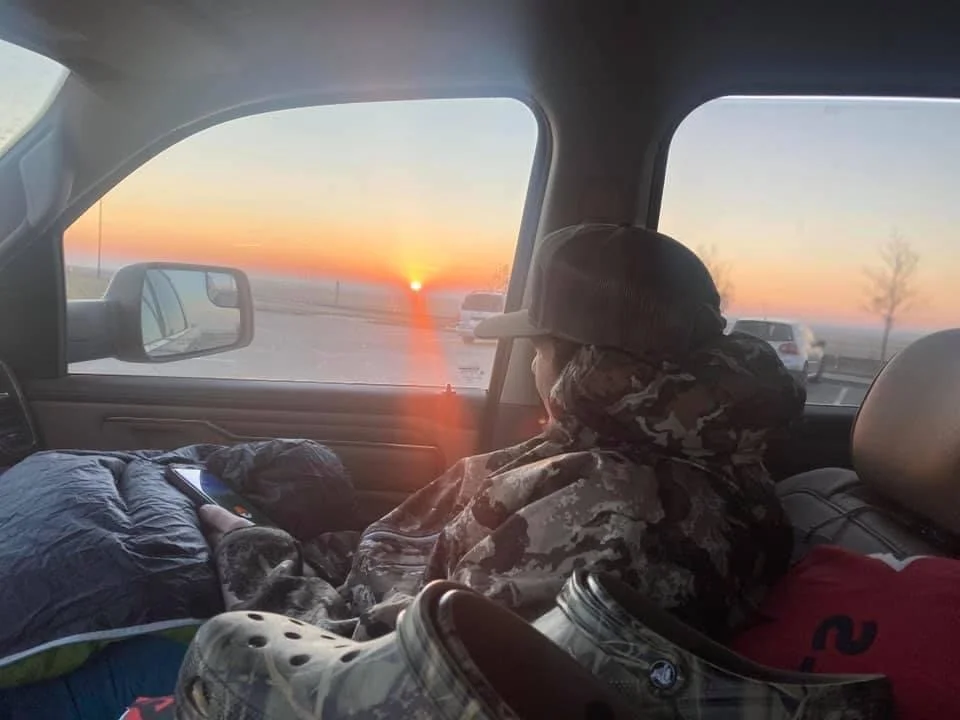Duck Hunting with a Bird Brain
A lesson on disorganization, winging it, and the best way to sleep in a truck.
I’ve suffered from Attention Deficit Hyperactive Disorder all of my life.
It’s manifested itself in different ways throughout my 31 years, too. When I was younger, it would be an incomparable burst of energy that any thoroughbred in the Kentucky Derby would envy. In my teenage years, a heavy-handed dose of Concerta allowed me to accomplish even the simplest tasks that made a mole hill feel like a mountain without. In my mid-to-late 20s, it was a constant forgetfulness of the most mundane items, sometimes items that were still in my hand.
At 31, I’ve learned what parts of me are here to stay, and what I’ll have to manage without the help of medication and therapy. One of those things is time management, and making the best of the time given to me in a day. There’s little rhyme or rhythm to my schedule other than, “Be at work for 5:00 AM, leave work at 3:30 PM.”
Never one to use a planner or a calendar, my ADHD is what makes my duck season such a wonderfully chaotic event.
Too many times have I forgotten things that I once deemed essential to duck hunting, only to realize that I’ll forge on without them when I’m faced with the dilemma while standing in my truck’s headlights at three in the morning.
There are waders, for instance, which are quite nice for keeping you dry. But, in a south Louisiana duck season, few are the days where a thick set of neoprenes are truly needed. A pirogue will keep you out of the water and dry enough (in most cases) to suffice for a hunt, though it’ll likely be a shorter and more uncomfortable trip than once thought. Let me add: Willingly drenching yourself for the sake of a duck hunt isn’t prudent. It’s something I do only when the weather warms, which can happen easily in my area. Don’t try it in the north.
I’ve left the boat launch without duck calls on more occasions than I’d like to admit, but that could’ve well been for the better with my poor calling skills. I’ve suffered without sunglasses, gloves, pirogue paddles, and blind snacks all to take advantage of a 60-day duck season.
It doesn’t help that my schedule becomes infinitely busier in the fall, as well: I still cover sports while working as a pipefitter full time, and a full weekend of football coverage means my nights are spent in a press box, and my mornings are spent in a duck blind. There’s little time for scouting, brushing blinds, or repairing gear once the gears of a duck season are in motion. I try my hardest to be the model employee for 10 months out of the year, the kind who’s a real pleasure to work with; Between the months of November and January, though, I’m doing just enough to stay out of the unemployment line.
It leads to wildly cathartic seasons that allow me to experience the highs and lows in my own unique way; I feel successful for killing birds when plans don’t go as they should and I’m forced to adapt, but I also feel the failures when my best-laid plans don’t produce as hoped. While I’m sure that’s true for most sportsmen and women, it’s a major part of what keeps me coming back to duck hunting.
As I go back and read through my own words, I realize that I may incorrectly lay the blame for my chaotic season on my ADHD, when I may in fact be the cheapest duck hunter on the planet. I shoot Winchester Experts typically, only because I purchased 40 or so boxes from a local Walmart when they went on clearance in 2020. I stopped buying expensive waders and started using a store brand from a regional box store. My boat motor is a 2005 Go-Devil surface drive that I picked up for a bargain. I drive a 2013 Nissan Frontier 4x4 with 250,000 miles that’s been paid off for several years,
Yes, I’m a large man with a small truck. It’s the same reason I sleep in my small truck on road trips, rather than pony up for a hotel room. I slide the driver’s seat back, tuck myself into a zero-degree mummy bag, crack the back window a quarter inch and doze off. It’s especially helpful for those late nights of driving when you reach a campground in the dark and don’t have the urge to earn your scout badge in tent building by the headlights of a truck.
It’s not just cost-effective, either: More often than not, it’ll shave hours off of your trip as well. I can only remember one instance where I slept more than four hours in the RV parking lot of a Love’s gas station in west Texas. Safety is important, as well, which is why I tend to stick to gas stations with high traffic and well-lit areas.
Of course, a seasoned traveler is born from trial and error, and my travels haven’t been without their fair share of obstacles. Flat truck tires are a necessity for any memorable trip. A new coat of dust on your truck will be a conversation piece of Christmas. Blown trailer tires on a boat that wouldn’t run when launched 600 miles from home leaves a wonderful story to tell when you eventually do make it back.
It’s certain that the memories of a successful hunt will last.
The memories of how we got there should too.


